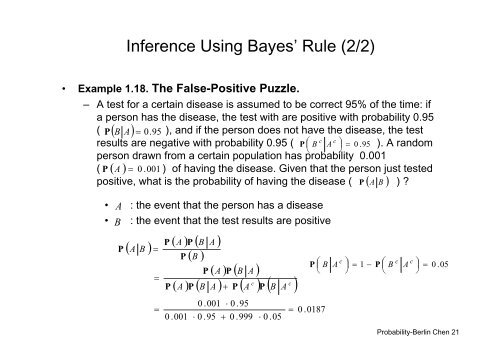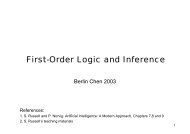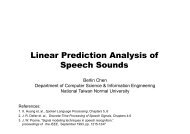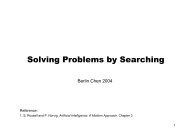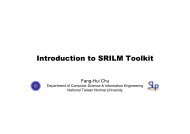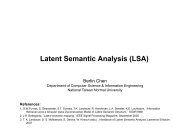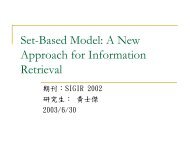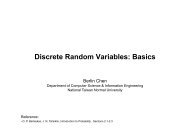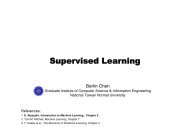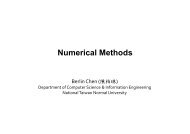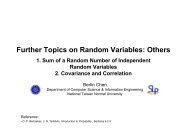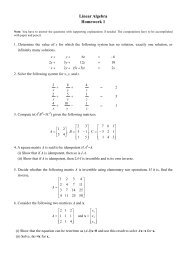Conditional Probability, Total Probability Theorem and ... - Berlin Chen
Conditional Probability, Total Probability Theorem and ... - Berlin Chen
Conditional Probability, Total Probability Theorem and ... - Berlin Chen
You also want an ePaper? Increase the reach of your titles
YUMPU automatically turns print PDFs into web optimized ePapers that Google loves.
Inference Using Bayes’ Rule (2/2)• Example 1.18. The False-Positive Puzzle.– A test for a certain disease is assumed to be correct 95% of the time: ifa person has the disease, the test with are positive with probability 0.95( PBA 0. 95 ), <strong>and</strong> if the person does not have the disease, the testresults are negative with probability 0.95 ( cP B c A 0 .95 ). A r<strong>and</strong>om person drawn from a certain population has probability 0.001( P A0 . 001 ) of having the disease. Given that the person just testedpositive, what is the probability of having the disease ( P A B ) ?• A : the event that the person has a disease• B : the event that the test results are positivePABPPAPBP BPAAPccAPBA P APBA BAP BAc1 c c P B A 0 .050 .0010 .001 0 .95 0 .95 0 .9990 .050 .0187<strong>Probability</strong>-<strong>Berlin</strong> <strong>Chen</strong> 21


